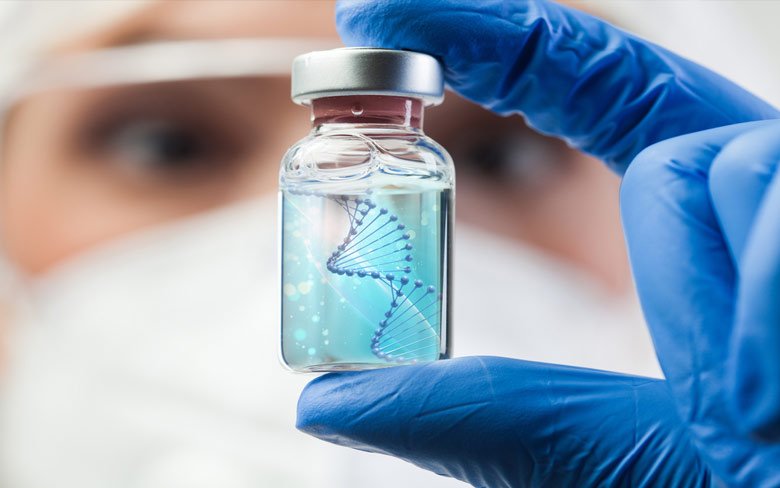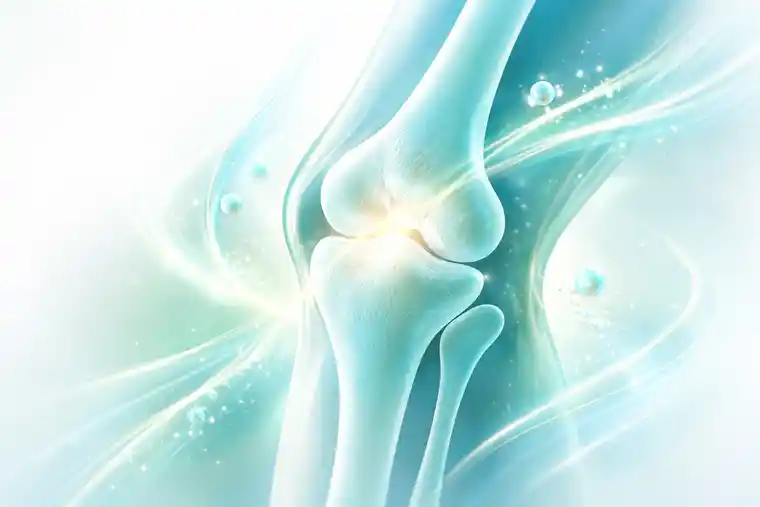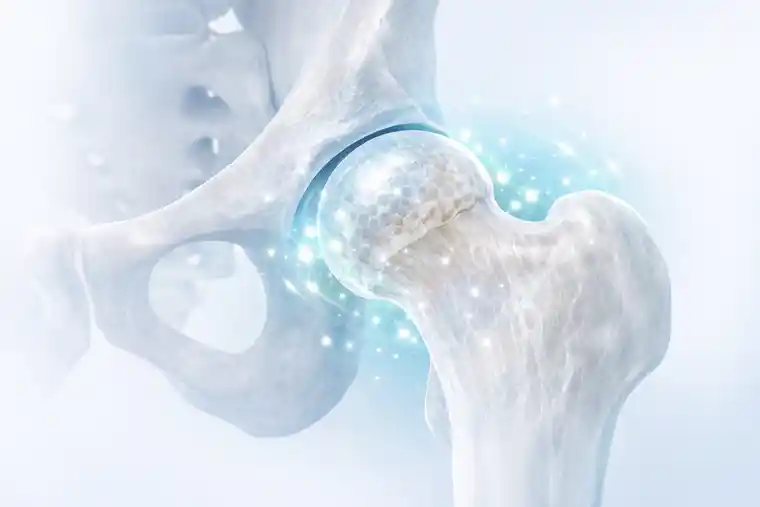The Great Future of the Stem Cell Therapy

Groundbreaking Advances and Revolutionary Potential
Stem cell therapy is an exciting and relatively new field in medicine. It offers the possibility of transforming the treatment of many diseases and is the hope for many people for whom conventional medicine has been unable to provide treatment.
Table of Contents
Let’s take a look at some of the amazing developments and what the future could hold for this innovative treatment.
Learn all about the Breakthroughs in stem cell research!
1. Induced pluripotent stem cells (iPSC)
A major breakthrough is the creation of induced pluripotent stem cells (iPSCs). These are adult cells that have been reprogrammed by injecting DNA into the cell so that they behave like embryonic stem cells, i.e. they can turn into any cell type.
This can circumvent the ethnic concerns associated with the use of embryonic stem cells. However, research is still in the early stages.
2. Genetic techniques such as CRISPR
Another exciting development is the application of genetic engineering to stem cells. With CRISPR, scientists can correct genetic defects in stem cells before using them for treatment. In the future, this should make it possible to cure hereditary diseases and prevent genetic disorders from getting worse.
CRISPR stands for “Clustered Regularly Interspaced Short Palindromic Repeats”. In simple terms, these are sections of repetitive DNA that occur in the genome. CRISPR/CAS is a molecular biology process in which the DNA string is cut or modified at a specific point. Individual DNA building blocks can then be inserted, removed or modified at the point where the cut was made. The process works for all organisms.
It should therefore be possible to permanently change the genetic information of the cell. This method opens up new treatment options for cancer, AIDS and a range of hereditary diseases.
However, genome editing, as the method is also known, must be carefully examined. Emmanuelle Charpentier and Jennifer Doudna, both molecular biologists, were awarded the Nobel Prize in Chemistry for their work in the year 2020.
But even ten years later, no therapies based on genome editing have been approved in Germany or many other European countries. However, the first clinical trials are now underway to test the success of such therapies, e.g. for leukaemia or other blood diseases. This method opens up new treatment options for cancer, AIDS and a range of hereditary diseases.
Experiments on mice have shown that various diseases can be treated by editing defective gene segments.
3. 3D Bioprinting and Tissue Engineering
These techniques should make it possible to produce complex tissues and organs from simple stem cells, enabling damaged organs and tissues to be repaired or recreated.
This science utilizes stem cells, scaffolds, growth factors, cytokines and chemokines in conjunction with growth factor delivery systems to augment, replace or regenerate tissues and organs.
Bioprinters differ from 3D printers by being equipped with bioinks that consist of biological materials, like living human cells.
One of the greatest challenges associated with 3D bioprinting has been its limited precision.
3D bioprinting is expected to become an industry game-changer over the coming years as technology develops further. Researchers hope this revolutionary feat will soon make organ transplantation much simpler for many waiting on donor lists for an organ match.
Stem Cell Therapy and Its Applications
Stem cell therapy shows tremendous promise for treating neurological conditions like Parkinson‘s, Alzheimer‘s and spinal cord injuries.
Researchers are developing treatments to repair damaged nerves and restore function.
Children with autism already benefit from stem cell therapy.
With heart diseases being one of the leading causes of mortality worldwide, stem cell therapy could prove groundbreaking. Scientists are exploring ways to regenerate heart tissue and enhance its functioning; clinical trials are currently testing these treatments in those who have suffered heart attacks or suffer from heart failure.
Cancer therapy is another area where stem cells are making an impactful statement about their power to transform healthcare. Bone marrow transplants using hematopoietic stem cells have long been an effective approach to fighting blood cancers; now researchers are exploring whether stem cells could also provide targeted cancer therapies and strengthen immunity in order to fight tumours more efficiently.
Autoimmune diseases like multiple sclerosis and rheumatoid arthritis could benefit from stem cell therapy as a treatment option. By resetting immune systems and repairing damaged tissues, stem cells could help manage these conditions more effectively while improving patients’ lives.
Overcoming Challenges
Stem cell therapy still faces several hurdles before becoming mainstream.
Ensuring treatments are safe and effective is of utmost importance, thus rigorous testing and regulations must take place to ensure this.
Ethical issues surrounding embryonic stem cells must also be considered; iPSCs offer an attractive solution in this regard.
Researchers are striving to make stem cell treatments more cost-effective and accessible, and are devising methods for mass production and delivery that could lower costs while helping more individuals benefit from them.
The Future of Stem Cell Therapy
Stem cell therapy holds great promise for the future.
As research continues and technology improves, we may soon witness regenerative medicine provide cures to diseases previously considered incurable – leading to longer, healthier lives for many individuals.
Stem cell therapy is an exciting area of medical innovation with great promise to transform healthcare. As we gain more knowledge and develop new treatments, the possibilities become limitless.
Stay informed with all the latest breakthroughs and news in stem cell therapy at Medclinics.com.
Why choose MedClinics?
MedClinics is your ideal partner for any surgery abroad. As we are connected to 300+ doctors, clinics and hospitals in Istanbul und Turkey, we make the most research for you. You just need to sit down and choose the offer that comforts you most. MedClinics only works together with reliable institutions and all are checked by us from time to time.
Our network includes some of the most reputable healthcare providers in the country. So you can be sure, to receive the best and highest standard of care to an affordable price. With MedClinics, you are not just a patient, you are in trusted hands every step of the way, you have a trusted partner to guide you through every phase of your journey.
Get a free consultation and no-obligation quote now!
Stay Updated
Follow our blog for the latest in medical and aesthetic treatments, tips for maintaining healthy teeth, and inspiring patient stories.
FAQ
What are iPSCs – induced pluripotent stem cells?
These are adult cells that have been reprogrammed by injecting DNA into the cell so that they behave like embryonic stem cells,
How can stem cell therapy help with heart diseases?
Stem cell therapy can regenerate damaged heart tissue and improve heart function, potentially helping patients who have had heart attacks or suffer from heart failure.
What role does gene editing play in stem cell therapy?
Gene editing tools like CRISPR can fix genetic defects in stem cells before they are used in treatments, which could cure inherited diseases and prevent genetic disorders from worsening.
However, genome editing is still in the phase of clinical trials.
What can be treated with stem cells?
Stem cell therapy can treat a variety of diseases, such as neurological disorders like Parkinson’s and Alzheimer’s, heart diseases, certain types of cancers such as blood cancers through bone marrow transplants. It also shows promise for autoimmune diseases like multiple sclerosis and rheumatoid arthritis, and can have success in the treatment of diabetes and autism.
Get your free consultation
- Need guidance and reassurance?
- Talk to a real person from MedClinics!
- Let's find the perfect doctor together.





